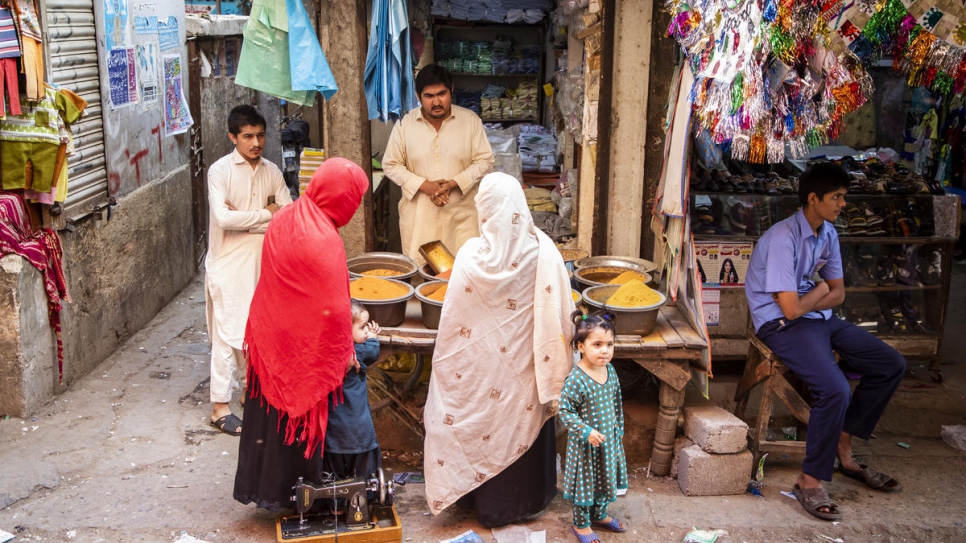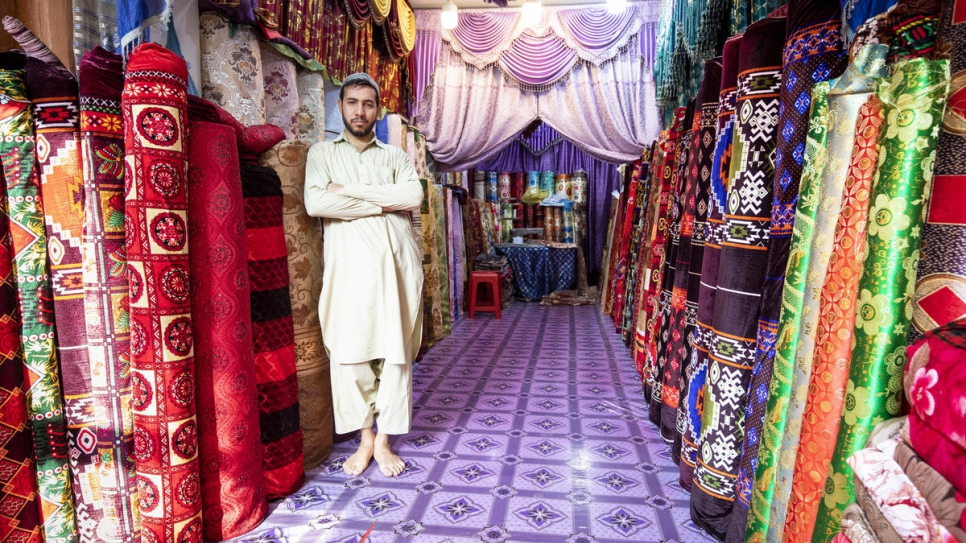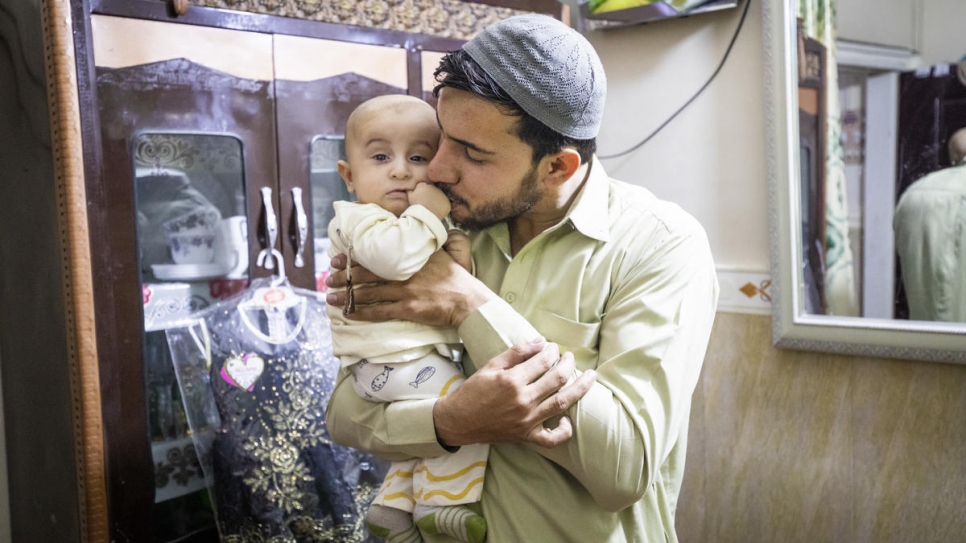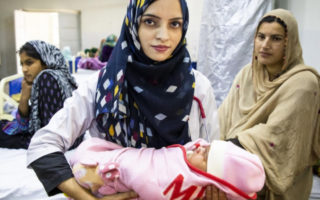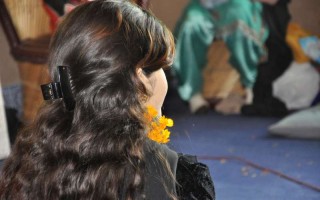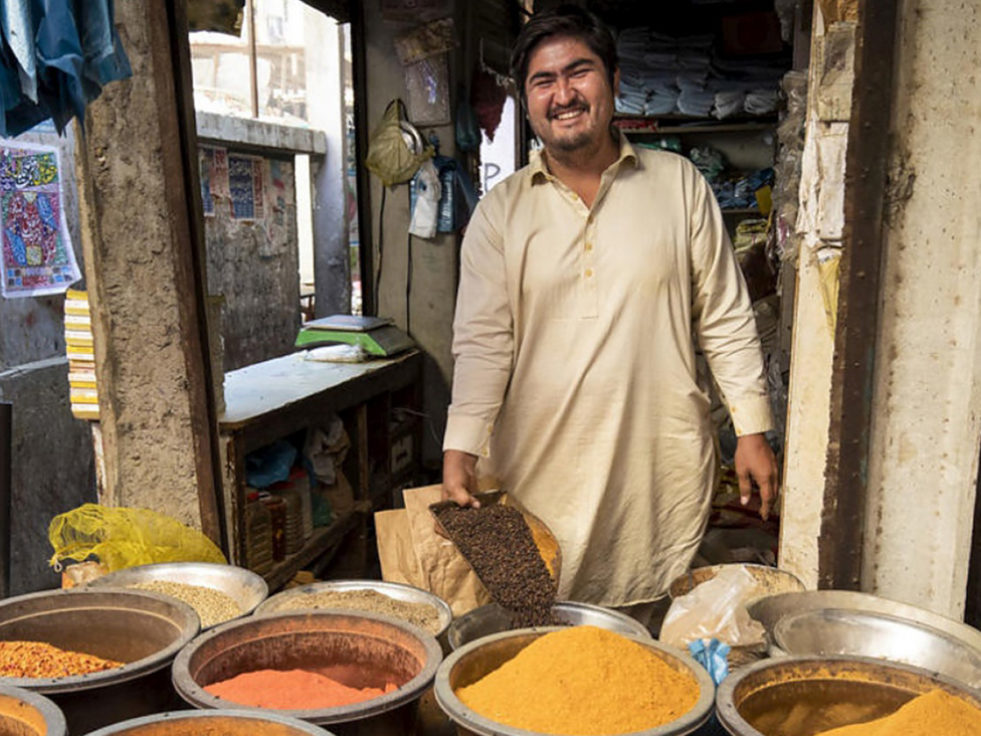
Mohammad Azeem, 27, sells spices at his shop in Al-Asif Square market in Karachi. © UNHCR/Roger Arnold
The need for greater solidarity with Afghan refugees and their hosts is to be discussed at two-day conference in Pakistan this month.
By Kate Bond in Karachi, Pakistan
In a small corner of a bustling market in southern Pakistan, Mohammad Azeem runs his fingers through a barrel of bright red paprika. He smiles. His spices are selling well today.
For years, as an Afghan refugee with no access to the banking system, Mohammad was forced to rely on friends to cash cheques and keep his money safe. Now business is booming after new laws allowed him to open a bank account last year.
“Before, I dealt in cash only,” he says, from the small stall he runs in Al-Asif Square, in Karachi, southern Pakistan.
“There is a threat to you when you have that kind of cash at home. Having a bank account is really important. We deposit cash in the account and then we can take cash out at the ATM. Money is safe there. It has helped us.”
“Before, I dealt in cash only.”
Mohammad is among some 2.7 million Afghan registered refugees living out of their homeland nearly 40 years after conflict broke out, 90 per cent of whom live in neighbouring Pakistan and Iran.
Later this month, the UN Secretary-General António Guterres, UN High Commissioner for Refugees Filippo Grandi and Pakistan Prime Minister Imran Khan will attend a two-day conference in Islamabad seeking greater burden- and solidarity-sharing for the Afghan refugee situation.
For four decades, Pakistan has worked to include refugees in its education and national health care systems, and boost support to host communities.
In February 2019, it also allowed Afghan refugees like Azeem to open bank accounts, providing them with access to safer and more secure forms of managing their finances while in exile.
Among the beneficiaries is Afghan refugee Shifat Ullah, 23, who worked as a tailoring apprentice for six years, before opening his own carpet shop.
As a refugee, he was forced to rely on cash and borrow from his boss to raise capital for his business. Now, with a bank account, Shifat can make regular repayments to his creditor and save for the future.
“It used to be hard to find the money,” he says. “Now we are at a point where we’re able to pay back our creditors and provide for my family.”
The upcoming conference in Islamabad on 17-18 of February will ask what other countries can learn from Pakistan’s commitment. It will also shed a light on conditions Afghan refugees wish to see for their voluntary return.
Originally published by UNHCR on 12 February 2020




